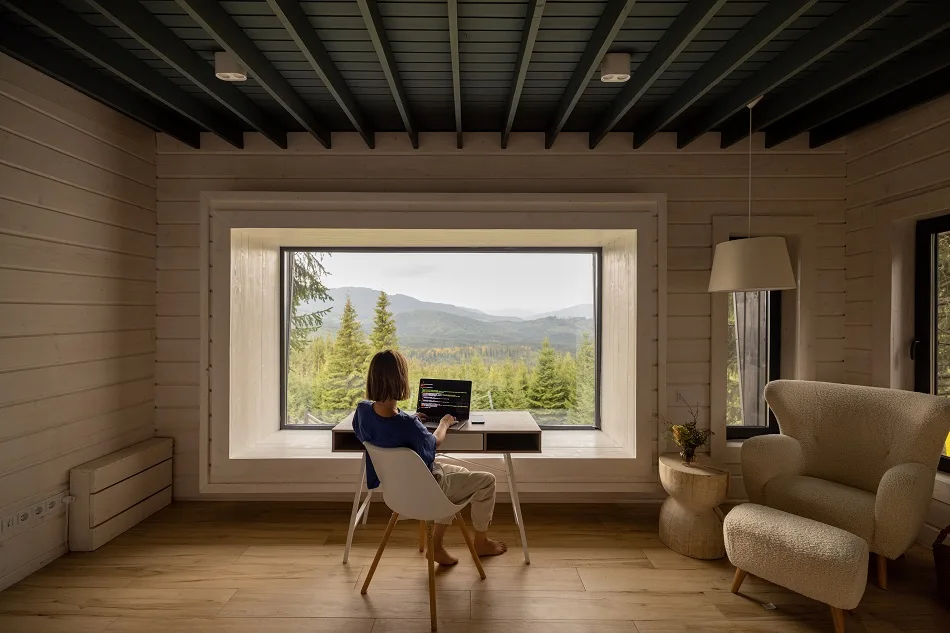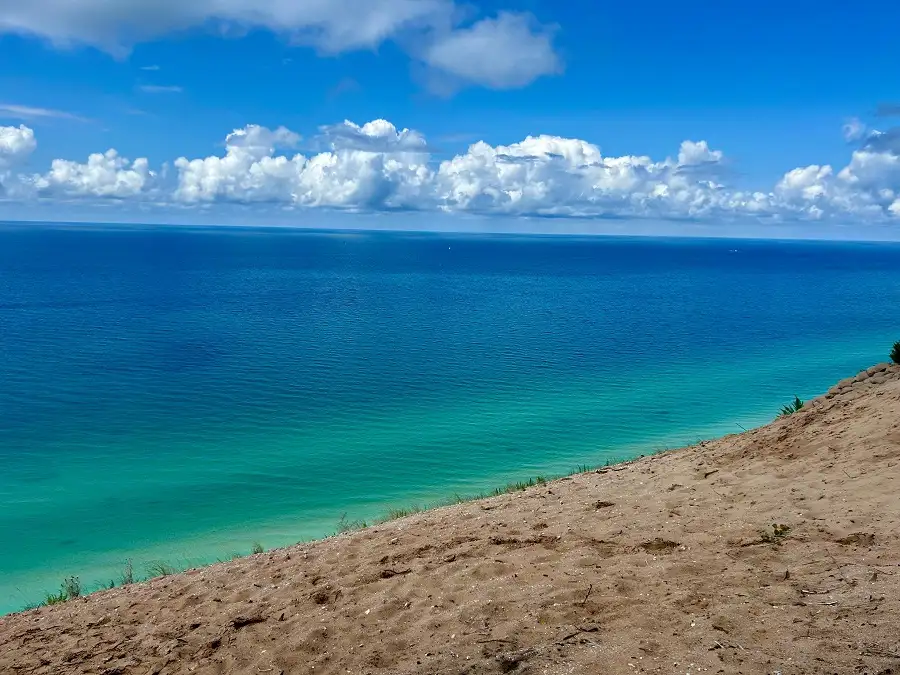How to Buy a Vacation Home: A Complete Guide
Looking for the perfect blend of lakeside living and urban convenience? Northwest Indiana’s charm is in its unique positioning — just a stone’s throw from Chicago’s bustling streets, yet worlds away with its serene Indiana Dunes and welcoming communities. Read this blog to learn how to buy a vacation home in this lucrative real estate market.
Is a Vacation Home Right for You?

A retreat. An investment. A responsibility. The idea of a vacation home captivates homeowners seeking their own slice of paradise. Before committing to second-home ownership, let’s weigh in if purchasing more real estate makes sense for you.
Benefits of Owning a Vacation Property
More than an escape, a vacation property can enhance your lifestyle and financial portfolio.
- Travel cost reduction: Eliminate expensive hotel bookings and be free to vacation whenever you choose without worrying about seasonal rate spikes or availability.
- Home-style comfort: Access to a full kitchen means enjoying home-cooked meals, accommodating dietary preferences, and significantly reducing dining-out expenses during stays.
- Spacious living: Unlike cramped hotel rooms, vacation homes offer ample space for family gatherings, entertaining friends, and storing recreational equipment for local activities.
- Investment potential: Build wealth through property appreciation while exploring rental income opportunities during periods when you’re not using the property.
Drawbacks of Getting a Vacation Home
At the same time, the financial commitment and unexpected responsibilities can become a source of stress:
- Another mortgage: A second mortgage brings substantial financial pressure with double monthly payments and property taxes. Regular living expenses combined with this additional burden can quickly deplete savings and threaten your financial stability.
- Landlord responsibilities: From finding reliable tenants and handling maintenance emergencies to dealing with seasonal vacancies and unexpected repair costs. The time and effort required to manage a rental property can turn your vacation dream into a stressful second job.
- Uncertain investment returns: Market fluctuations in tourist areas can be more volatile, and seasonal demand patterns may limit your property’s potential for long-term value growth.
- Increased vulnerability: During economic hardships, maintaining dual payments becomes especially challenging and increases your risk of foreclosure compared to single-property owners.
Second Home Classification

Your property must meet these specific requirements to qualify as a vacation home:
- Occupancy requirements: You must live in the property for part of the year, though it cannot be your main residence. This part-time occupancy distinguishes it from both primary homes and pure investment properties.
- Property specifications: The home must be a single-unit dwelling that remains accessible throughout the entire year.
- Usage restrictions: The property cannot be anyone else’s primary residence. Additionally, it must be free from rental agreements, timeshare arrangements, or professional property management contracts.
Be sure to discuss your intended property use with your lender, as they may have additional requirements beyond these basic qualifications.
Rules and Restrictions for Renting Your Vacation Property
Following these rules creates a successful and compliant rental operation in Northwest Indiana:
Registration and Permits
Most municipalities in Northwest Indiana, including cities like Gary and Evansville, require property owners to register their short-term rentals (STRs). For instance, Gary mandates a one-time permit fee of $150 for each rental property. This registration process often includes inspections to ensure compliance with safety standards.
Zoning Laws
Zoning regulations can vary significantly across different areas. Some cities may restrict STRs to certain zones or prohibit them altogether. It’s essential to check local zoning ordinances to confirm your property is eligible for short-term rental use.
Tax Obligations

Hosts must collect and remit applicable taxes, including a 7% sales tax and local innkeeper’s taxes that can range from 5% to 10%, depending on the municipality. This tax obligation typically applies to rentals of less than 30 days.
Occupancy Limits
Local governments often impose occupancy limits based on property size to prevent overcrowding and maintain neighborhood standards. Be sure to familiarize yourself with these restrictions.
Compliance and Inspections
Many cities enforce compliance through regular inspections and audits. Non-compliance can lead to fines or revocation of rental permits, making it vital for hosts to adhere strictly to local regulations.
Your Step-by-Step Guide to Buying a Vacation Home

Here’s your property purchasing roadmap to navigate everything from market analysis to mortgage options and maximizing rental returns.
1. Evaluate Your Financial Readiness
Can you afford a second home? Consider how often you’ll use the property and whether the cost aligns with your lifestyle. If you plan to generate rental income, prepare for potential vacancy periods. Monthly mortgage payments continue regardless of your rental success.
The financial commitment is substantial. Most lenders require at least a 20% down payment, and that’s just the start. Property taxes in vacation destinations often run higher than those in primary residences, and insurance costs can spike due to location-specific risks for beach or mountain properties.
Also, factor in inevitable maintenance issues, such as winter pipe maintenance, air conditioning repairs, and unexpected roof damage. We recommend building a robust emergency fund specifically for these costs.
Your vacation home should be a source of joy, not financial stress, so ensure you’re prepared for all scenarios before making this significant investment.
2. Choose the Perfect Vacation Property Type and Location
When selecting your vacation rental property, focus on features that attract consistent bookings. Location is paramount — look for areas with year-round appeal, whether near Lake Michigan’s beaches, close to Chicago for weekend getaways, or popular local attractions.
Consider properties with versatile spaces that accommodate different types of guests, from families to couples.
Research local zoning laws and HOA regulations to ensure short-term rentals are permitted. Pay attention to amenities that command higher rates: private parking, outdoor spaces, updated kitchens, and reliable WiFi.
The property’s layout should balance comfort with durability — think easy-to-clean surfaces and smartly designed spaces.
Most importantly, choose a location with proven rental demand and potential for appreciation.
Best Places to Buy a Vacation Home in Northwest Indiana in 2025

With beautiful surroundings and strong rental potential, these are the best places to buy a vacation home in Northwest Indiana:
- Michigan City: Known for its beautiful beaches along Lake Michigan and attractions like the Washington Park Zoo, Michigan City offers a vibrant downtown.
Average price: $300,000 to $400,000. - La Porte: With Pine Lake and Stone Lake at its heart, this historic community offers year-round recreation, from summer swimming and kayaking to ice fishing in winter.
Average price: $250,000 to $300,000. - Chesterton: Close to Indiana Dunes National Park, Chesterton is perfect for nature lovers. Miles of pristine beaches and hiking trails draw outdoor enthusiasts year-round.
Average price: $300,000 to $350,000 - Valparaiso: The city’s extensive parks and trail system offer year-round outdoor recreation, while downtown features award-winning restaurants, local breweries, and frequent festivals that keep the community vibrant.
Average price: $280,000 to $350,000 - Marquette Park: Located along Lake Michigan’s shoreline, this historic park area offers stunning beach access and preserved dunes for hiking. The Marquette Park Pavilion and lagoon offer a scenic backdrop, while nearby trails wind through diverse ecosystems from wetlands to forests.
Average price: $275,000 to $450,000.
3. Analyze the Rental Income Potential
First, check out similar properties in your area and track their prices over a few months. Talk to local property managers — they’ll give you the real scoop on occupancy rates and what guests are paying. Get some concrete numbers by requesting past utility bills and maintenance costs.
Keep an eye on local events that might affect your bookings. And don’t just guess — try booking a few places yourself to understand the market from a guest’s perspective. Then, take all this real-world data to determine what you could earn.
ROI Calculation Example for Vacation Rentals
| ROI for a Vacation Rental Northwest Indiana Example Calculation |
|||
|---|---|---|---|
| House listing cost: $275,000 | |||
| Down Payment (20%) | $55,000 | Monthly Mortgage | $1,485 |
| Closing Costs | $5,000 | Monthly Utilities | $250 |
| Average Property Taxes per Year | $3,850 | Insurance | $150 |
| Initial Fundraising/Setup Costs | $15,000 | Property Management (15%) | $450 |
| Maintenance Reserve (5%) | $150 | ||
| Average Monthly Rental Income* | $3,000 | ||
| Monthly Cash Flow | $515 | ||
| Total Initial Investment | $79,350 | Annual Return ($512 x 12 Months) | $6,180 |
| Property’s ROI | |||
| $6,180 ÷ $79,350 = 0.0779 | Cash ROI is 7.79% | ||
*Based on a $275,000 30-year fixed-rate mortgage with 6.5% interest (20% down).
Actual rates may vary.
**Average monthly rental income calculation:
– Peak season (Jun-Aug): $300/night x 80% occupancy = $7,200/month
– Shoulder season (April-May, Sep-Oct): $200/night x 70% occupancy = $4,200/month
– Off-season (Nov-Mar): $150/night x 60% occupancy = $2,700/month
Yearly average: $3,000/month
Note: Total ROI, including property appreciation (42% since 2020) would be significantly higher. This calculation shows cash ROI only.
4. Get a Vacation Home Mortgage Pre-Approval
Getting pre-approved shows sellers, you’re serious and gives you a clear budget to work with. You’ll need a credit score of at least 680, though 700+ will land you better rates. Lenders examine your debt-to-income ratio (DTI) more strictly than with primary homes – keep your total DTI under 43%, with 36% or lower preferred.
Plan for a substantial down payment — typically 20% minimum, though some lenders ask for 25-30%. You’ll need to demonstrate healthy cash reserves, usually six months of payments for both properties.
Compare offers from multiple lenders to find the best rates and terms. Always be transparent about the property’s intended use — presenting a vacation home as a primary residence constitutes mortgage fraud with serious penalties.
5. Find a Real Estate Agent

A skilled real estate agent brings invaluable local market knowledge beyond online listings. They’ll spot potential rental income pitfalls, access off-market properties, and understand which locations yield better returns. Their experience with vacation properties means they know what features guests value most and which areas have strict rental regulations.
They can also connect you with reliable property managers, maintenance services, and local vendors — relationships crucial for remote ownership. Plus, they’ll negotiate better terms by knowing the market’s seasonal patterns and how this affects property values. Their expertise saves you time, money, and costly mistakes.
6. Manage Ongoing Property Care
Running a successful vacation rental means staying ahead of property care. A professional management company handles the daily details — from bookings and guest questions to cleaning schedules.
Regular inspections catch minor issues before they become expensive problems, while local contractors ensure quick fixes when needed. Set aside money for unexpected repairs and seasonal updates to keep your property fresh and competitive.
Between busy seasons, schedule deep cleans to give guests the quality experience they expect.
7. Protect Your Investment with Insurance

Getting the right insurance for your vacation rental comes down to three main types of coverage:
- Landlord insurance handles the property itself and gives you basic liability protection.
- Short-term rental insurance covers guest-related issues and lost income if you can’t rent. An umbrella policy adds that extra layer of protection above your standard coverage.
- Near water? You’ll want flood insurance too.
8. Understand Taxes
Understanding the tax implications of your vacation rental can save you thousands of dollars when filing returns.
Property Tax Deduction
Like your primary residence, you can deduct property taxes on your vacation home. These taxes appear on Schedule A if you itemize deductions. However, remember that the SALT (state and local tax) deduction cap limits your total deduction to $10,000 across all properties.
Personal Residence Mortgage Interest Deduction
If you use your vacation home personally for more than 14 days or 10% of rental days (whichever is longer), you can deduct mortgage interest like a second home. The combined interest from your primary and vacation homes is limited to loans up to $750,000.
Rental Property Mortgage Interest Deduction
When your property qualifies as a rental (personal use under the 14-day/10% threshold), mortgage interest becomes a business expense on Schedule E, with no loan limit caps applied and all interest deductible as a rental expense.
Note: To claim these deductions, you must carefully track personal versus rental use days. Consider working with a tax professional familiar with vacation rentals, as mixed-use properties have complex reporting requirements. The IRS scrutinizes vacation rental deductions closely, so accurate records are essential.
Purchasing a Vacation Home with Co-Owners

If the financial stretch of a vacation home feels too steep after running the numbers, consider co-ownership. Pooling resources with family members or trusted friends lets you split all costs — from the down payment and mortgage to maintenance and property taxes.
Each owner gets dedicated time to use the property while sharing the rental income and tax benefits. This option makes luxury properties more accessible and reduces individual risk. The right partnership can make vacation home ownership both affordable and enjoyable.
Key Takeaways: Making Your Vacation Home Dream a Reality
From analyzing rental income potential to understanding tax implications, buying a vacation rental requires careful planning and market knowledge. Key steps include tracking real market data, securing mortgage pre-approval, choosing proper insurance, and understanding tax deductions. For those finding it a financial stretch, co-ownership offers an attractive alternative to split costs while enjoying the benefits.
The Quadwalls Real Estate Team knows the best places to buy a vacation home. We bring you local expertise and a professional network to realize your investment goals. Let’s talk about finding your perfect vacation property.
FAQs About How to Buy a Vacation Home
How much down do you need for a vacation home?
To buy a vacation home in Northwest Indiana, expect a down payment of 10-25% of the purchase price, plus closing costs. Monthly costs include mortgage payments, property taxes, insurance, utilities, and a maintenance fund. Currently, the average vacation home price in the area is $316,481.
Is it harder to get a mortgage for a vacation home?
Yes, vacation home mortgages are typically harder to secure. Lenders require larger down payments (15-25%), charge higher interest rates, and have stricter credit requirements. You’ll need an excellent credit score (700+), more cash reserves, and a lower debt-to-income ratio than for a primary residence.
Is it better to buy a vacation home or an investment property?
The choice depends on your goals. Vacation homes offer personal enjoyment and potential rental income but come with higher costs and emotional attachment. Investment properties focus purely on financial returns through rental income and appreciation, with decisions based solely on market performance and profit potential.
How can I afford two houses?
Most people can afford two houses by leveraging the equity in their current home through a HELOC or cash-out refinance. They use this money to make a down payment on the second property. Strong credit, stable income, and potential rental income help cover the ongoing mortgage payments.
 Updated: April 24, 2025
Updated: April 24, 2025  189
189  13 min
13 min











